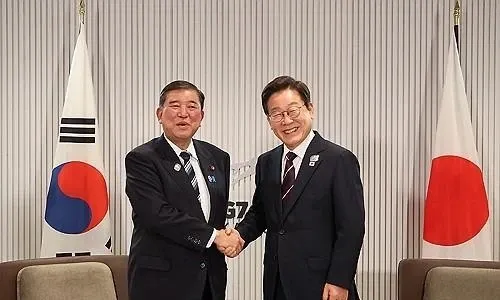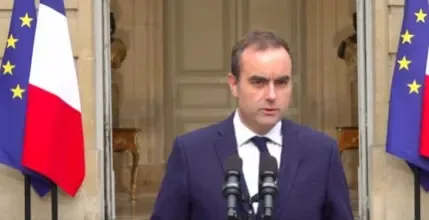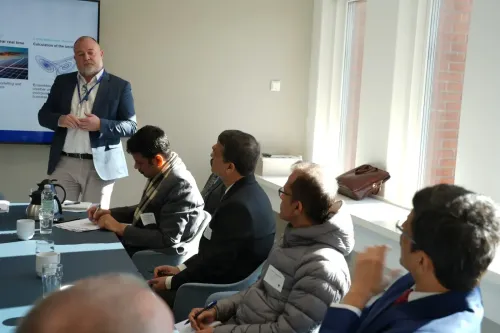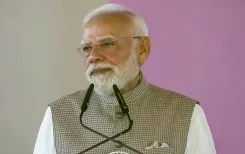Will South Korea's Lee Jae Myung Strengthen Ties with Japan?

Synopsis
Key Takeaways
- President Lee's visit to Japan is scheduled for August 23-24.
- The summit aims to strengthen Korea-Japan relations and trilateral partnerships with the US.
- This visit marks Lee's first trip to Japan since taking office.
- Significant anniversaries create a backdrop for discussions on cooperation.
- Trade policies and regional security will be key agenda items.
Seoul, Aug 13 (NationPress) President Lee Jae Myung of South Korea is set to visit Japan from August 23-24 for summit discussions with Prime Minister Shigeru Ishiba of Japan. The focus will be on enhancing bilateral ties and reinforcing the trilateral partnership with the United States, as revealed by the presidential office on Wednesday.
This marks Lee's first visit to Japan since assuming office in early June and his second face-to-face meeting with Ishiba, following their discussions at the Group of Seven summit in Canada last June.
According to presidential spokesperson Kang Yu-jung, "The leaders aim to establish a robust foundation for forward-looking cooperation between the two nations, while also exploring avenues to enhance Korea-Japan and Korea-US-Japan collaborations, regional peace and stability, and various global issues."
"We anticipate this visit will deepen their personal rapport and trust," she noted.
Lee's choice to visit Japan prior to the US is considered unconventional, as former South Korean Presidents usually opt for Washington as their initial diplomatic destination.
During their previous engagement, Lee and Ishiba resolved to cultivate future-oriented relations, continue their "shuttle diplomacy," and strengthen trilateral cooperation with the US.
Lee's commitment to a "pragmatic diplomacy" approach will be evaluated, coinciding with the 60th anniversary of normalized relations between South Korea and Japan and the 80th anniversary of Korea's liberation from Japan's colonial rule from 1910-45.
Lee has promised to pursue a "two-track" policy that separates historical disagreements from future-focused collaboration, recognizing the mutual agreement between Seoul and Tokyo on the necessity for enhanced cooperation amid evolving economic and security landscapes.
As significant Asian security partners of the US and major economic players, both nations are contending with increasing trade uncertainties due to the Trump administration's aggressive tariffs and rising security challenges from North Korea's strengthening relations with Russia.
Lee plans to address Washington's trade policies with Ishiba, especially in light of both nations being key exporters to the US market.
Recently, the US initiated 15 percent tariffs on imports from South Korea and Japan, including automobiles, following separate trade agreements involving substantial investment packages and US energy purchases.
When inquired about whether South Korea's import restrictions on Japanese seafood would be part of the summit agenda, the presidential spokesperson indicated that both countries are organizing topics for discussion, as reported by Yonhap news agency.
Kang stated, "Easing restrictions on seafood imports is more of a concern for Japan than for us. We will respond appropriately, prioritizing public health, and this issue is currently under coordination."
South Korea prohibited all seafood imports from eight Japanese prefectures near Fukushima in 2013 due to radiation fears following the 2011 nuclear disaster, vowing to uphold the ban until public health concerns are fully assuaged.
With Lee's trips to both the US and Japan confirmed, the presidential office announced it would cancel its earlier plans to dispatch special envoys to the two nations.









